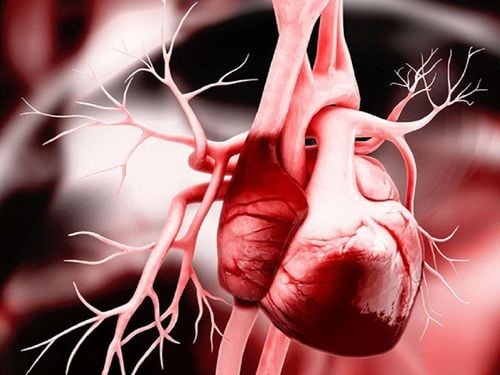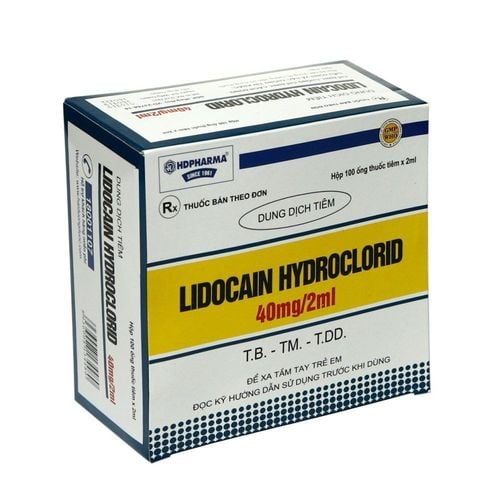This is an automatically translated article.
The article was professionally consulted with Master, Doctor Pham Van Hung - Department of Medical Examination & Internal Medicine - Vinmec Da Nang International General Hospital.Ventricular fibrillation, also known as ventricular fibrillation, is one of the common cardiovascular disorders and has a very high risk of affecting the life of patients, so it is necessary to detect and have appropriate treatment for the condition. this disease.
1. What is ventricular fibrillation?
Ventricular fibrillation is a condition in which the heart rate increases, electrical impulses are emitted abnormally, causing the ventricles to vibrate abnormally without purpose, so they cannot pump blood to other places. Therefore, ventricular fibrillation will cause blood pressure to drop suddenly, the blood supply to many organs will be greatly reduced.Ventricular fibrillation is considered an emergency cardiovascular condition that needs medical support as soon as possible. Because if ventricular fibrillation leads to loss of consciousness for a short period of time, it will soon be followed by apnea, loss of pulse, leading to a very high risk of circulatory arrest. To handle this situation, CPR and cardiopulmonary resuscitation are essential.
Patients with risk factors for a cardiovascular disorder ventricular fibrillation include:
Previous history of ventricular fibrillation Have a history of previous heart attack Having certain congenital defects Myocardium Electrocution affects the heart muscle Take some drugs with banned properties such as cocaine , methamphetamine
2. Symptoms of ventricular fibrillation
Some typical clinical symptoms of patients experiencing ventricular fibrillation are:Loss of consciousness, fainting Pain chest tightness Rapidly increased heart rate Dizziness Nausea Shortness of breath, shallow breathing.

3. Treatment of ventricular fibrillation
The principle of treatment of ventricular fibrillation is to restore blood flow in the patient's body as quickly as possible to limit the lack of blood supply to the brain as well as other organs, followed by preventive treatment. prevent subsequent recurrence of ventricular fibrillation.3.1 Emergency treatment
Cardiopulmonary resuscitation is the first choice for emergency treatment of ventricular fibrillation. Cardiopulmonary resuscitation consists of various steps in which CPR is performed to restore circulation in the body by replicating the pumping action of the heart.The special thing is that CPR can be performed by the patient's family or medical staff, with the aim of saving the patient's life as soon as possible.
At the medical facility, the patient will be pushed and pressed chest 100 times / minute, breathing breathing, using a defibrillator, electric shock on the chest wall if the patient has signs of cardiac arrest.
3.2 Preventive treatment of recurrent ventricular fibrillation
If the patient is diagnosed with ventricular fibrillation due to congenital structural abnormalities of the heart, then the patient may be prescribed medication and some methods to treat this condition.Some typical antiarrhythmic drugs such as beta blockers, ACE inhibitors, calcium blockers... will be applied in each specific case. A defibrillator will be implanted in the patient's body to monitor the patient's heart rate regularly. This enables timely detection of ventricular fibrillation. Or the patient will be installed a stent or undergo coronary bypass surgery to restore circulation in the body, facilitating blood to other organs to be fully supplied.
Ventricular fibrillation is a dangerous arrhythmia in common cardiovascular disorders. Ventricular fibrillation needs to be treated promptly and aggressively in the early stages to save the patient's life. At the same time, it is necessary to treat and prevent ventricular fibrillation that may occur in the later period.
To protect cardiovascular health in general and detect early signs of ventricular fibrillation, customers can sign up for Cardiovascular Screening Package - Basic Cardiovascular Examination of Vinmec International General Hospital. The examination package helps to detect cardiovascular problems at the earliest through tests and modern imaging methods. The package is for all ages, genders and is especially essential for people with risk factors for cardiovascular disease.
Please dial HOTLINE for more information or register for an appointment HERE. Download MyVinmec app to make appointments faster and to manage your bookings easily.














